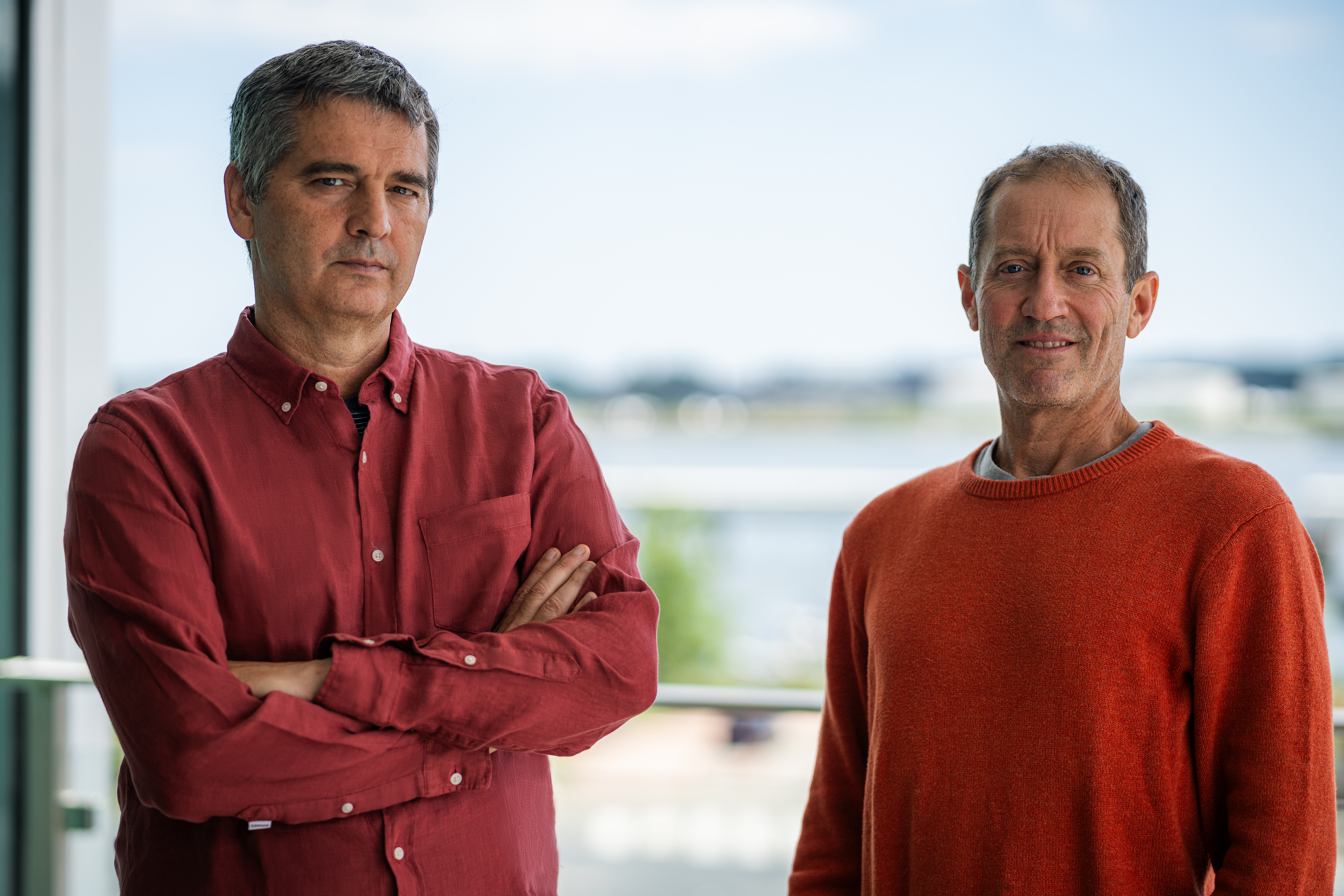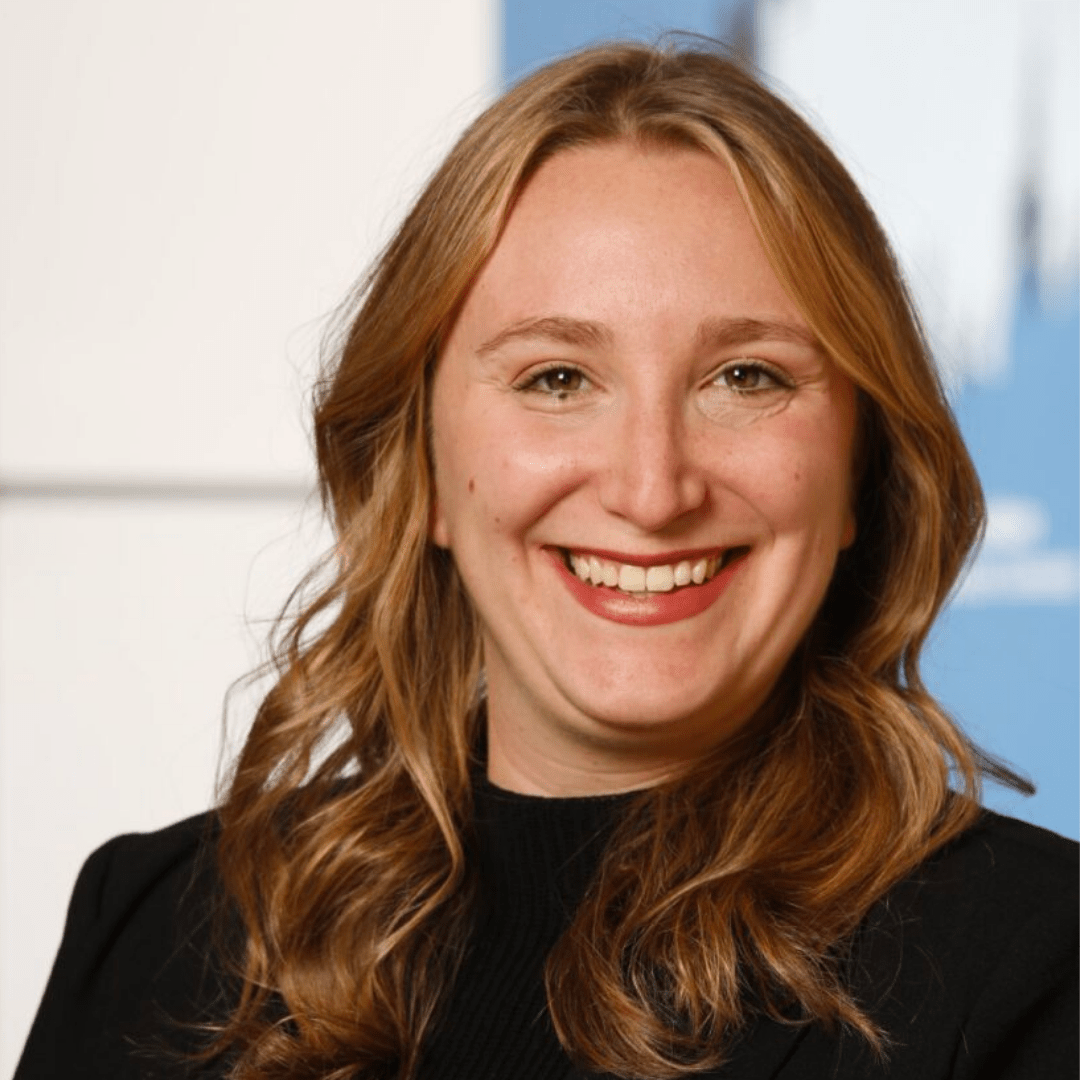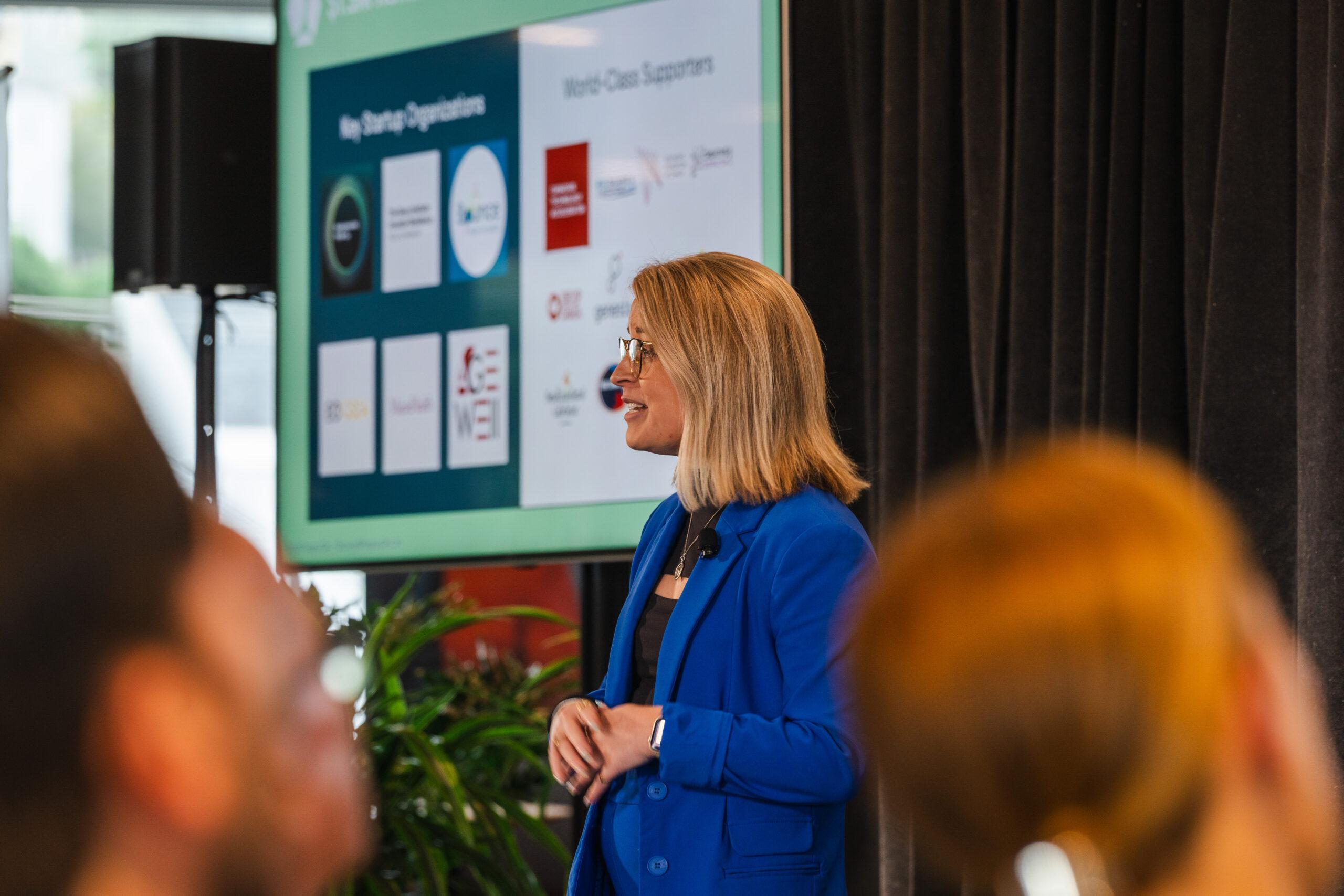
Health Analytics Startup Finds Clients, Co-Ops, and Community at the Roux Institute
For Ken Shapiro, the co-founder of Apriqot, starting a public health analytics company shortly after moving across the country from California to Maine was a leap of faith.
Today, he can say that the decision has undoubtedly paid off.
In April, Shapiro and his co-founder, Kevin Konty, completed their participation in the inaugural cohort of the Future of Healthcare Founder Residency—a pioneering accelerator program for health-tech startups created by Northeastern University’s Roux Institute. The program runs in partnership with major players in healthcare and innovation, including Northern Light Health, MaineHealth, and the Maine Venture Fund.
Apriqot specializes in developing comprehensive public health models that integrate health data with other social and census data, allowing officials to observe local conditions and social factors to make more informed health policies. The startup met some of their most important customers during the residency program.
“Some of the people we met during the first weeks of the residency program are the people we have contracts with today, like MaineHealth,” Shapiro said.
MaineHealth, Maine’s largest healthcare organization, is currently collaborating with Apriqot and the City of Portland to analyze food insecurity and its geographic distribution in southern Maine. The objective is to gain a more detailed understanding of food insecurity in southern Maine, identify the social factors associated with it, and accurately locate areas where it is most prevalent.
It was through the residency program and an Accelerate Grant from Northeastern’s Roux Institute that Apriqot also established a partnership with the Maine CDC. Together, they’re working on creating a more effective detection model for dementia and Alzheimer’s disease, conditions whose prevalence is not well documented.
“Healthcare systems are required to report cases of cancer to the CDC, but there are no such requirements for many other diseases, such as Alzheimer’s” Shapiro explained. Due to this, data on dementia and Alzheimer’s is often scarce and unreliable. Using data from the CDC and other public health organizations, Apriqot aims to develop a robust detection model for these diseases in Maine.
These initiatives mark just the beginning for Apriqot. As the company continues to provide analytics services to identify health trends in the state, they are developing a comprehensive and replicable process that will provide valuable insights into Maine’s public health landscape.
“Our ideal scenario is to maintain a detailed, dynamic model of the state, allowing any public health stakeholder to contribute their data so we can help solve public health issues,” Shapiro shared.
The Future of Healthcare Founder Residency not only connected Apriqot with many of its clients, but also gave the company added credibility, making it easier to access data from state agencies.
“It would have been difficult to approach the CDC for data without the support and funding of the residency program,” Shapiro said. “Maine is the perfect testbed for our product because the stakeholders here are so accessible.”
“Maine is the perfect testbed for our product because the stakeholders here are so accessible.”
KEN SHAPIRO
Co-Founder and CEO, Apriqot
Apriqot also found its first full-time hire through Northeastern. Data analytics graduate student Nicole Hewes was midway through her master’s program at the Roux Institute when she met Shapiro. A former K-12 STEM educator, Hewes had made the decision to switch careers as her interest in computer science and technical fields grew. She enrolled in the Master’s of Data Analytics program at the Roux Institute in January of 2023, and when it came time to secure a co-op position, she was hoping to find one that combined social good with a dynamic work environment, similar to teaching. Apriqot offered just that.
“The co-op role I had at Apriqot was fantastic because of the variety. I was involved in grant writing, report writing, producing visualizations, analyzing data, and engaging with stakeholders,” Hewes said.
The role suited her so well that she was hired full-time as the director of projects and communications. Hewes added that the job provided valuable real-world context to her coursework. “I can actually apply what I’m learning in my classes to this job. It’s a much more vibrant and active learning experience,” she explained.
Shapiro, who has hired two other co-ops from Northeastern University, plans to continue doing so as long as possible. “It’s a great business model for us,” he stated. “If things keep going as planned, there will always be a role for someone coming out of their graduate studies.”

Elena Brondolo, the director of the Future of Healthcare Founder Residency at the Roux Institute, says Apriqot is the perfect case study of the ways the program can benefit a start-up through the numerous resources on how to develop a health related tech venture, mentorship to guide the process, talent to grow their team, and partnership available through Northeastern University.
“In just one year, Apriqot has transformed from an ambitious idea into a revenue-generating reality,” Brondolo said. “This Future of Healthcare company exemplifies the power of our program and vision shared by the Roux Institute and our partners: leveraging technology to deliver more equitable healthcare to our communities while simultaneously creating invaluable career development prospects for our student body.”
“[Apriqot] exemplifies the power of our program and vision shared by Roux and our partners: leveraging technology to deliver more equitable healthcare to our communities while simultaneously creating invaluable career development prospects for our student body.”

ELENA BRONDOLO
Director of the Future of Healthcare Founder Residency, Northeastern's Roux Institute



